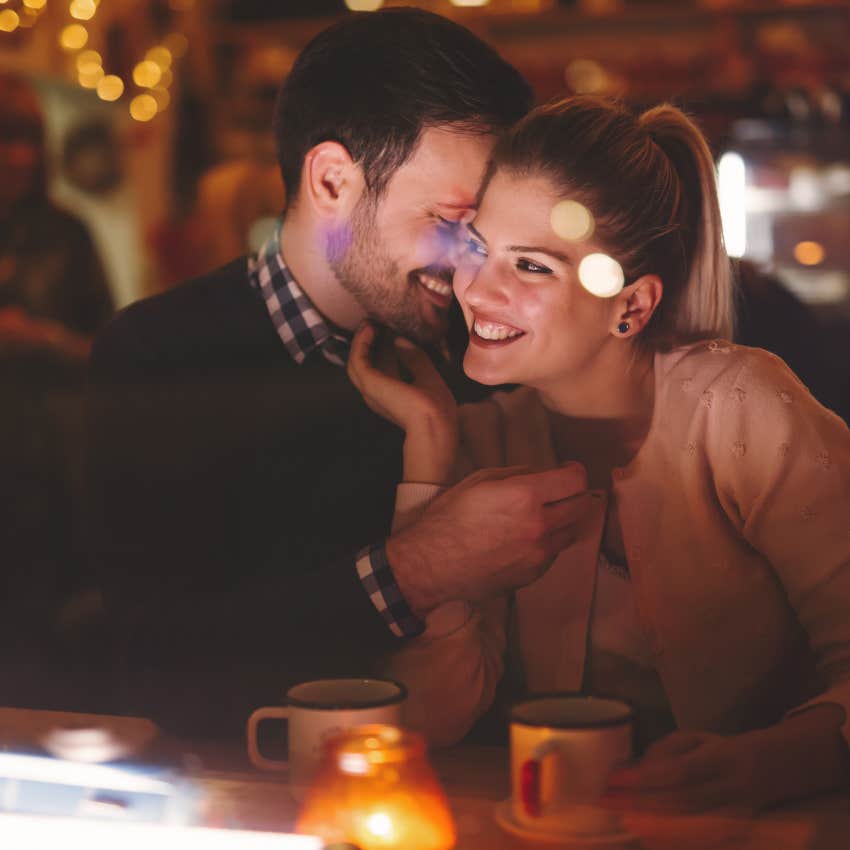People Who Think They're In Love But Are Actually Caught In Infatuation Feel These 8 Emotions
Love is one thing. Infatuation is a completely different beast.
 Henry Tuchez | Unsplash
Henry Tuchez | Unsplash Love is hard. Not complex — but hard. Especially when it comes to wondering if you're in love or if you're just infatuated. I talk a lot about signs you're in love, but here’s a list of common signs — especially feelings — we attribute to “love” that aren’t. (Hint: it’s most of them.)
While infatuation may initially feel like love, it's often more about fantasy and projection rather than real intimacy or long-term compatibility.
People who think they're in love but are caught in infatuation feel these eight emotions:
1. Euphoria
Love is not about highs and “peaks.” Everyone experiences the elation of emotional peaks with their partners, especially early on, and a lot of people misidentify these feelings as “love.”
Love is reality. It has peaks, sure — it shouldn’t be ugly — but love is really in the valleys. That’s where you know for sure.
What happens when things go south, or things hit the fan? Because love is neither fight nor flight; love doubles down, joins forces, and makes it work.
If your reaction is to throw punches or throw in the towel the minute you’re no longer flying high, it’s not love. And you won’t know until you hit that.
2. Lust
 NDAB Creativity / Shutterstock
NDAB Creativity / Shutterstock
Look, lustful feelings are wonderful — they are incredible parts of the human experience, so feel all of the feelings for your partner, because those are some of the best! Just also understand that love is not simply “feelings.” The problem is:
- It makes for immature, volatile relationships, and
- It leaves us susceptible to one day “not feeling it” and folding.
Love is a choice, an active decision, and a series of investments, efforts, and actions.
3. Infatuation
Infatuation is typically characterized by a more superficial, idealized, and often fleeting attraction, while love involves deeper intimacy, acceptance of flaws, and a commitment to the other person's well-being.
Research argues that cultural narratives and media portrayals of love can also contribute to the confusion between infatuation and love, often romanticizing the initial stages of attraction and overlooking the complexities of long-term relationships.
4. Companionship
If you like someone simply because they keep you company, it’s not love. Partners are not here to keep us entertained, or distracted, or protect us from feeling lonely, or staring down the barrel of old age.
Research has found that the confusion arises when emotional safety, validation, or even excitement are mistaken for genuine love. Feeling secure and comfortable in a relationship can often be mistaken for the safety felt with a deep connection of love.
5. Attraction
If you think you love someone because they’re “beautiful” or “giving” or “make you feel good” or some other pleasure, you should realize: that’s not real love.
Not adult love, anyway. Not mature love. That is the love we learn from our parents — one-sided love in which one person makes sacrifices for the other’s comfort.
And yes, while the best some people ever do is to “compromise,” passing the “pleasure” baton back and forth between them (“she’s pretty,” “he takes me out”), that doesn’t mean it’s love.
That’s not to say you don’t (or can’t) really love them, but “the pleasure they give you” (or, in codependent cases, the pleasure you give them) can never be the foundation.
6. Attachment
 MDV Edwards / Shutterstock
MDV Edwards / Shutterstock
Just go re-read the first two sections, honestly. Mature love is based on healthy non-attachment.
Research suggests that insecure attachment styles can lead individuals to misinterpret their emotional dependence as love, which directly hinders personal growth and healthy relationship development.
7. Obsession
I don’t understand how anybody could ever think it’s “romantic” for someone to declare, “I’m going to marry you” or “I’m going to have kids with you” shortly after meeting them.
Gross. Get out of here with that. To be fair … when it aligns in the right way, it feels really good. But when it doesn’t, and they claim more of you than you offered or chose, it’s awkward.
8. Fear
Fear and love can’t coexist. If your primary anxiety around the idea of breaking up is “fear of being alone,” it isn’t love. Then what is love?
- Embracing each other as individual human beings with individual human lives, who just happen to get along enough to bump down the road alongside one another.
- Then, mutual investment and support in each other’s growth, especially when things get rough or scary. But always complementary, never to complete one another. And always with care and compassion.
- Choice.
- Action.
- Investment.
Love is deliberate, and we are active players. Attraction and infatuation may be something we “fall into” against our will, but mature and healthy love is something we consciously build.
Kris Gage is a freelance writer and blogger. She has been featured in Scary Mommy, The Startup, The Huffington Post, Insider Business, MamaMia, Thought Catalog, and more.

